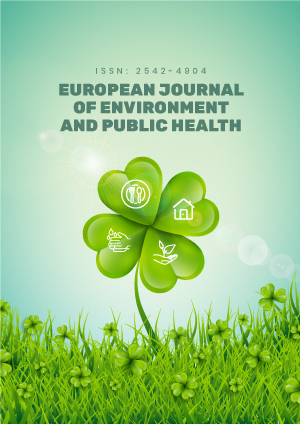Abstract
Children are energetic and filled with vigour, the high rate of person-to-person contact at schools could leave the students susceptible to hygiene-related illnesses if appropriate measures are not put in place. The absence of adequate handwash facilities, inadequate hand hygiene knowledge, and poor hand hygiene practices have been reported to be prevalent among schools in Nigeria. The emergence of COVID-19 even makes it more important to provide recent and quality data as schools plan to reopen safely. This study aimed to assess the accessibility of public-school students in Badagry, Lagos State to basic handwash services, as well as their hygiene-related knowledge and practices. A 4-stage sampling method was used to select 5 wards, 5 schools, the classes, and 351 students. A mixed-method which included a semi-structured questionnaire, observational checklist, and a key informant interview guide was used to collect data. Data were inputted into SPSS version 20 and analyzed using descriptive statistics, chi-square, and logistic regression at a 95% confidence interval. The respondents had a mean age of 15.88± 1.54 years. All the available wash-hand stations (WHS) were in the toilet blocks. All the male toilet facilities had WHS as opposed to just 60% of the female facilities. None of the WHS had soap present, while a quarter of the WHS did not have water available. Based on the Joint Monitoring Programme (JMP) classification; none of the WHS provided basic hygiene service, 60% provided limited service and 40% provided no service. The majority (83%) of the students possessed a good knowledge of hand hygiene, however, only less than half (47%) reported washing their hands with soap and water at school. Factors like age (p=0.010) and their parents’ educational status (mother- p=0.002; father- p=0.011) significantly affected the students’ knowledge. The absence of basic handwash facilities in all the schools clearly shows the need for rapid intervention, particularly to eliminate gender disparities and to ensure the sustainable availability of sufficient soap and water.
License
This is an open access article distributed under the Creative Commons Attribution License which permits unrestricted use, distribution, and reproduction in any medium, provided the original work is properly cited.
Article Type: Research Article
EUR J ENV PUBLIC HLT, Volume 5, Issue 2, 2021, Article No: em0072
https://doi.org/10.21601/ejeph/9704
Publication date: 13 Feb 2021
Article Views: 7287
Article Downloads: 5388
Open Access References How to cite this article
 Full Text (PDF)
Full Text (PDF)